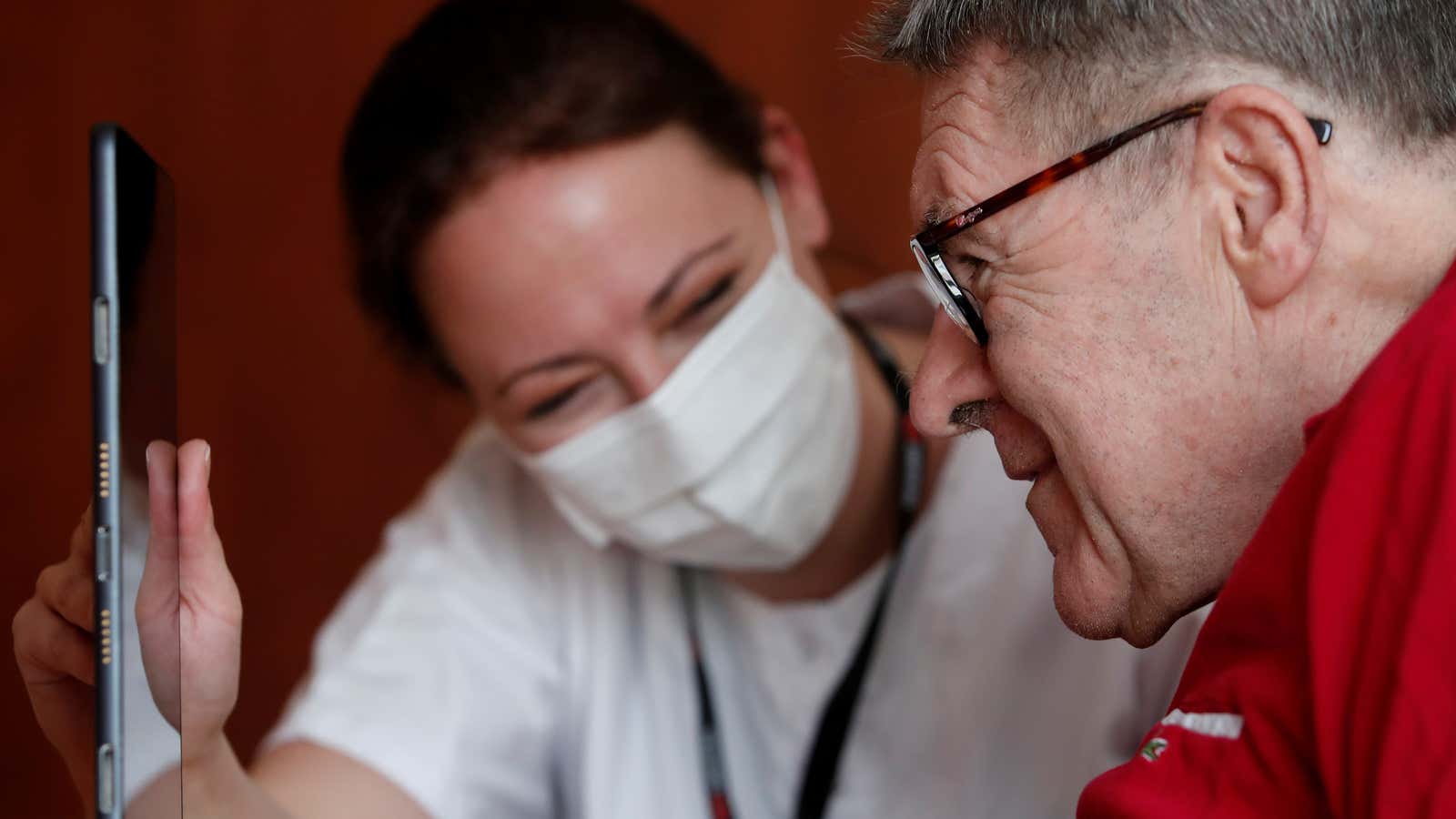Ocean Le vividly remembers a day when, as a 10-year-old living in Hawai’i, a family friend was moved into section 8 housing—an apartment subsidized by the US government for low-income individuals or families. The friend was from Vietnam, and unable to understand anything her new landlord was saying to her in English. Le was asked to step in and serve as her translator and advocate.
It wasn’t until he was older that he realized the gravity of what that day meant: there were aging adults all over the country for whom resources were inaccessible due to language or other cultural barriers. Assisting them could be a life’s work.
Le is now 25 and is the program coordinator at the Diverse Elders Coalition. Like many Gen Zers, he’s not sure what his exact career path will look like. But like his peers, he wants his job to be about more than a paycheck; he wants to work in a field that serves others.
Elder care is one such field. Even before the Covid-19 pandemic, elder care was stretched thin with limited resources and a growing population of people 65 years and older. The number of adults over 65 worldwide is currently a little over 10%; by 2050, it’s expected to be 16%. Without a major overhaul of how governments and the private sector care for its seniors, systems will be quickly overwhelmed, just as they were with the pandemic.
Some purpose-driven millennials have noticed this need, and have turned to careers advocating for and serving elders. Quartz spoke with five such individuals about their jobs.

Ocean Le, 25
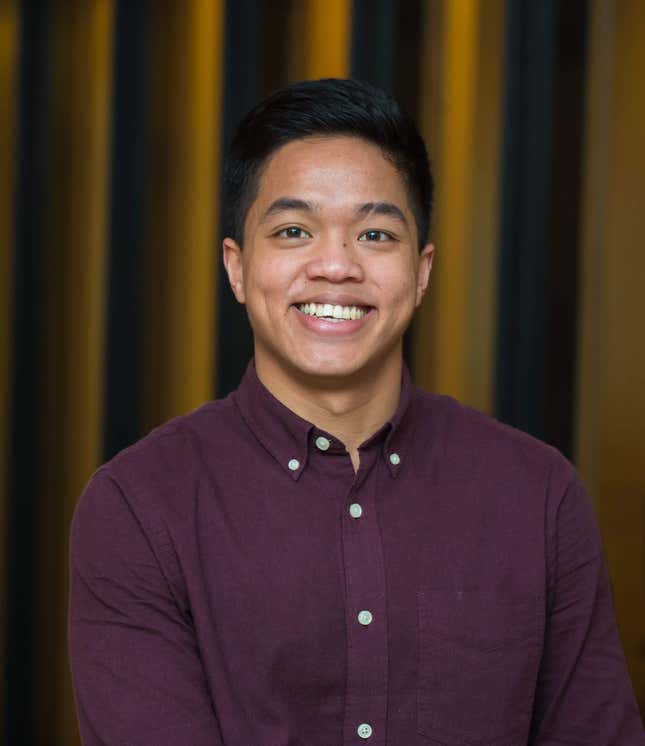
Ocean Le has been with the Diverse Elders Coalition (DEC) for just over a year and a half. He heard about the group while he was finishing up his master’s degree in human nutrition at Columbia University Medical Center, and working as an intern at the John A. Hartford Foundation, an elder care philanthropy. He felt he needed a break from academia before heading to medical school, and decided to work with the DEC, a project partly funded by the Hartford Foundation. “I wanted to help the communities that represent my family and me. It’d be great to continue to research and give back,” he says. “I’d say it was one of the better decisions I made.”
Le’s cultural heritage is Nigerian and Vietnamese. His family spoke Vietnamese at home, but he picked up English as a second language living in Hawai’i. As he grew up, he saw the challenges his aging relatives living in the US faced, particularly in their older age when they relied on Le and his sister for care.
Now, as program coordinator for the DEC, Le is one of the people spearheading a major research initiative to understand the specific barriers to social and medical services minority elders face. The DEC represents six separate communities: the LGBTQ+ community, the Southeast Asian, Asian-American and Pacific Islander community, the Black community, Alaska Natives and Indigenous communities, and the Hispanic community. For a full year, Le and his colleagues set up focus groups and in-language surveys to provide members of these communities the chance to speak up about the challenges they’ve faced. Ultimately, the plan is to create culturally-sensitive training for healthcare providers who serve these diverse populations, based on the feedback DEC receives. It also plans to find ways to support caregivers in these communities, whether they’re family members or people at assisted living or nursing homes where these individuals reside.
Le says that the coronavirus pandemic has prompted the coalition to pivot its research to ask what these individuals and their caregivers needed to stay safe during a time when they’re isolated from their usual support and family members. Le’s immediate plans for the future are to publish some of this work in scientific journals, to use as evidence to advocate for certain kinds of federal support.
These publications would also help him work on his secondary goal: A medical degree, specializing in endocrinology and geriatrics. His plan, he says, is to focus on a condition called sarcopenia, which is characterized generally as a loss of muscle mass in older adults. No one knows what causes it specifically, although it may be related to nutritional deficits and sedentary lifestyle habits, and it’s not often flagged as a major medical issue because it’s so hard to spot. “Right now we have markers like BMI to see if you’re under or overweight, and that’s more general,” he says. Sarcopenia results in muscle being replaced by fat, which can contribute to cardiovascular disease, dementia, and even frailty and falls. It takes years to develop, but if we could treat it before it gets bad, Le says, doctors could prevent these other chronic conditions.
By working with diverse elders, Le feels he can get a better understanding of the kind of advocacy he’ll need to do in his job as a medical professional. “The work I’m doing is getting an idea of the differences and similarities of people in different communities,” he says.

Frances Huynh, 27
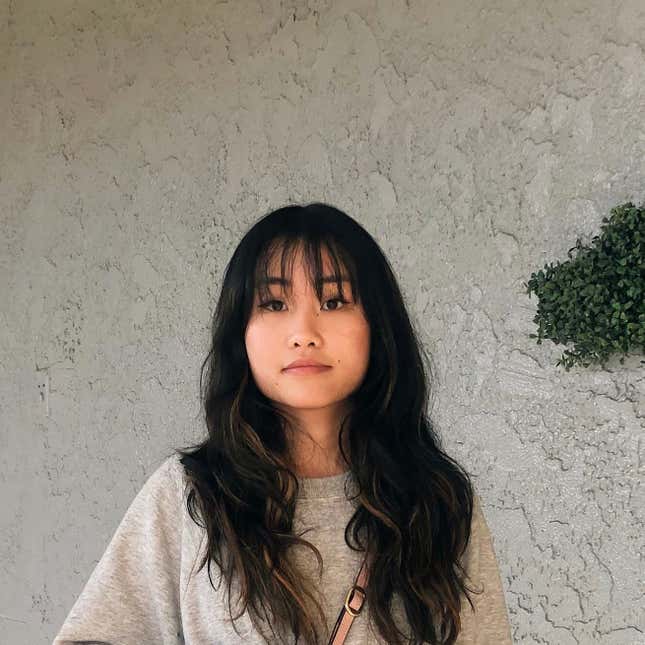
Frances Huynh started her two masters degrees in public health and Asian American Studies at the University of California, Los Angeles in the fall of 2015. At the time, she noticed that older adults in LA’s Chinatown—many of whom had limited English proficiency—were facing trouble with their landlords, and were experiencing harassment, eviction, and illegal rent increases, she says. So at 23, she started helping them organize tenant unions with the Chinatown Community for Equitable Development, a volunteer group. She worked with CCED throughout school, and has continued to do so through the pandemic.
Her volunteer work, combined with her degree in public health, solidified the notion that housing and economic stability are crucial aspects of health and wellbeing, which led her to her full-time job: National project coordinator with the National Asian Pacific Center on Aging.
Huynh develops training programs tailored for older adults of Southeast Asian or Pacific Island descent, with the goal of preparing them for steady jobs in community-based or federal organizations. The material is in-language, and features easy-to-read graphics that have more contrasting colors and larger fonts. It also leaves flexibility to teach enrolled participants other skills they may need for the job, like new computer skills.
Huynh’s interest in working with seniors comes largely from her family, who taught her the importance of mutual aid—even if they never quite used those explicit terms. It’s more of an attitude you bring with you going into any interaction, she says. Instead of assuming that one party will help the other, it’s “a shared sense of responsibility to take care of one another,” she says.
Huynh feels that there’s a lot to learn from older adults, especially those within immigrant or working class populations. As she works with them in her professional and volunteer capacity, she asks them about their lives—what they need now, what they like to do, how they lived when they were her age.
Since the pandemic started, her job has pivoted. She and her colleagues at NAPCA realized that there was extremely limited information on Covid-19 printed in languages other than English and Spanish. Their group created a hotline where adults could call and ask questions about the virus, how to get food in a time of extreme social distancing, or even to go through an in-language guided meditation. They also created information on the virus in six different languages, vetted by native speakers to make sure it was culturally appropriate.
It’s not clear where Huynh’s career will go next as the US claws its way out of the poorly managed pandemic. But where Huynh is working doesn’t matter to her as much as what she’s doing. “I just aspire to be able to do work, whether it’s paid or volunteer work, that really centers and advocates for historically marginalized folks,” she says. “That includes working class, diverse older adults…if I’m able to do whatever extent, that’s fulfilling to me, and that’d make me happy.”

Nihal Satyadev, 25
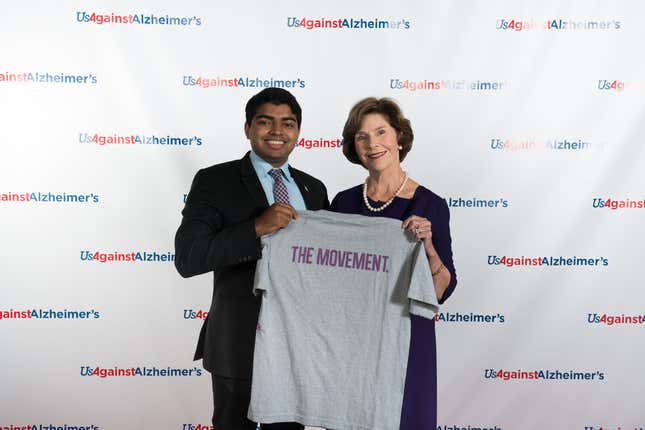
In 2015, Nihal Satyadev was a 20-year-old computer science major at UCLA when he attended a conference on Alzheimer’s that would change the direction of his life.
Satyadev had grown up helping to take care of a grandmother with Alzheimer’s. He was stunned to see that fewer than 50 of the 1,100-plus conference attendees were under age 40. To him, the wave of Alzheimer’s that’s heading for the US—more than 5 million people have the disease now, but that figure is expected to nearly triple by 2050 as the country ages—is not only a public health crisis, but a social justice issue that even twenty-somethings can’t afford to ignore.
It’s not only the elderly who deal with Alzheimer’s or who are harmed by the lack of creative thinking around the problem, he points out, because caregivers exist in every generation. In fact, one-fourth of the country’s 40 million caregivers are millennials and that number will only grow as the population ages. Dealing with Alzheimer’s and the economics of caring for people with dementia also has racial justice implications, as Black and Hispanic seniors are more likely to develop Alzheimer’s (scientists aren’t yet clear on the reasons).
“We have so many people who are getting older and not enough young people who are being born in this country,” Satyadev tells Quartz. ”We need to get people to take care of our older adults, and to understand their needs.”
A year after attending that conference, Satayadev co-founded the Youth Movement Against Alzheimer’s, now a national organization with 40 chapters. Initially, the YMAA focused on building awareness about the literal costs of the disease—“The economic burden was not being translated to our generation” says Satyadev —and about how the system fails families, in terms of medical interventions and the financial toll. He wants millennials and Gen Zers to know that “people are going into poverty essentially to afford care or to qualify for Medicaid,” (Indeed, this last reality came as news to one prominent millennial a couple of years ago: Pete Buttigieg, the former mayor of South Bend, Indiana and one-time Democratic presidential candidate talked about his mother’s shocking experience with the long-term care system.)
But soon the group’s work stretched beyond raising awareness. Satyadeva and his team began working with the UCLA Longevity Center on a project called Youthcare, pairing students with families that needed a break from caregiving. For three to six hours per week, students spend one-to-one time with someone in the early stages of Alzheimer’s, allowing that person’s caregiver some rare free time. “We learned that with just six hours a week, 75% of caregivers said that was enough of a break for them,” he says. In follow-up surveys, caregivers also reported that the respite leads to a major reduction in stress.
Now Satyadev is working with California politicians to take the student caregiver concept even further: He has proposed launching a Care Corps program that would operate much like the Peace Corps or Teach for America. Recent high school grads who joined would take full-time caregiver jobs for a year or two, be paid a stipend, and offered educational grants, the highest of which would go to those who continued to study and work in fields related to healthcare. The actual service would come at no charge to the individual with Alzheimer’s or their family.
“We spent two years really trying to get legislative energy around this,” Satyadev tells Quartz. The YMAA got the sign-off from major labor unions that would be affected by the program and secured the support of the California Medical Association, community groups across the state, and several California city mayors. Just as they were preparing to launch, Governor Gavin Newsom announced that the state would be building out an Alzheimer’s task force and creating a master plan for aging, Satyadev explains. “Now our efforts have been slowed down so that we can be more comprehensive around a California strategy towards older adults.”
In response to Covid-19 lockdowns that have left millions of seniors isolated and at risk of the many negative effects of loneliness, the YMAA has launched an app called Meals Together, which allows people to sign up to have a Zoom meal with a senior who could use the companionship.
Satyadev thinks the value that people get out of the volunteer work comes from realizing that “there are so many stereotypes around this disease that are oftentimes not true,” he says. “There’s a lot of people who have this disease who are very jovial, who are still able to maintain complex conversations.”
“You break down perceptions, you see the net benefit, and the smiles that these family caregivers have in the end, you hear the stories of what they’re able to do during this respite time,” he continues, and it helps the students feel good about the difference they’re making. YMAA has a great retention rate, according to Satyadev. That allowed him to promote someone with five years of experience to the CEO role now that he has stepped aside to study medicine. (He remains the chairperson at YMAA.) “I don’t think we’re anywhere close to the necessary amount of push that this movement needs to match the challenge it has,” he says, “but I think we’ve made a really strong start.”

Sasha Syahirah Rouse, 29
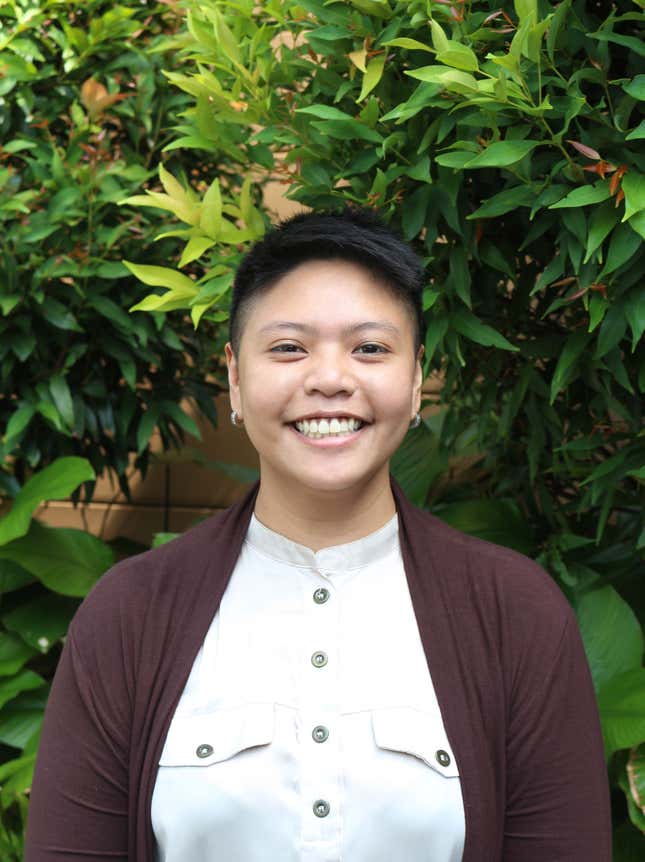
While she was in school, Rouse saw a troubling pattern: vulnerable populations, including the economically disadvantaged, and minorities, kept winding up in tangles with the criminal justice system. When she was living in Compton, California early in her career, she worked with those flitting in and out of contact with the police. She noticed that often, their situations were a result of several kinds of unmet needs coming together. “Understanding how they get dismissed on a systematic level only solidified this interest,” she says. After college, she decided to get her Master’s degree in forensic psychology to try to understand how some of these unmet needs play out on a system level.
Now, Rouse lives in Singapore where she applies her prior knowledge to new research at the Duke-NUS Medical School. Instead of working with some of the populations she had previously, she’s focusing on another kind of vulnerable, often overlooked population: seniors.
“I work with older adults with multiple chronic conditions living in public rental housing,” she says. They’re less wealthy, which could lead to housing or food insecurity, which could quickly exacerbate any problems they have with their health. If they have more problems with their health, they may encounter expenses that lead them to become even more economically unstable. Their challenges are cyclical, and extremely hard to break—especially if these individuals are living alone and are otherwise isolated.
Rouse’s work is focused on preventing these downward spirals through evidence-based research. One of her projects, called the Enhanced Community of Care (ECOC), studies how different kinds of conversations with healthcare providers impact a person’s health. Typical interactions often conclude with a doctor telling the person they need to quit smoking or eat more vegetables. These bits of advice are usually things that care recipients already know.
Instead, Rouse is studying the impact of motivational interviewing: a technique that relies on more open-ended questions for the patient to get at why they continue to smoke or eat an imbalanced diet. This way, providers have a chance to get at more of the systemic issues affecting older adults in lower socioeconomic brackets.
Additionally, Rouse works on a project called We Are Bonded, which studies the outcome of pairing younger adults who are between 18 and 35 with older adults who are more socially isolated. These pairings are based on mutual interests, like cooking, which the two participants can discuss or do together for at least six months. Unlike a lot of volunteer programs, which involve a younger person meeting an older adult for a few hours at a time, We Are Bonded aims to evaluate the tangible effects of having a long-term relationship—whether that means different clinical or psycho-social outcomes, or even differences across the community. So far, Rouse says they’ve collected and are analyzing preliminary data from the first six months of the program.
Only about 15% of Singapore’s population is over 65 now, says Rahul Malhotra, another researcher at theDuke-NUS Medical School—but that portion is growing. By 2050, that population is expected to be over 40%, according to the United Nations. Rouse has noticed that as more people age, more of them will come from diverse backgrounds or marginalized groups—similar to the ones she saw during her work in the US. “I want to see what successful aging means for older adults who aren’t the norm,” she says. “Only then can we truly understand how to better support these individuals well throughout their lifespan, and prepare future generations from similar backgrounds.”

Antonio Torres, 24
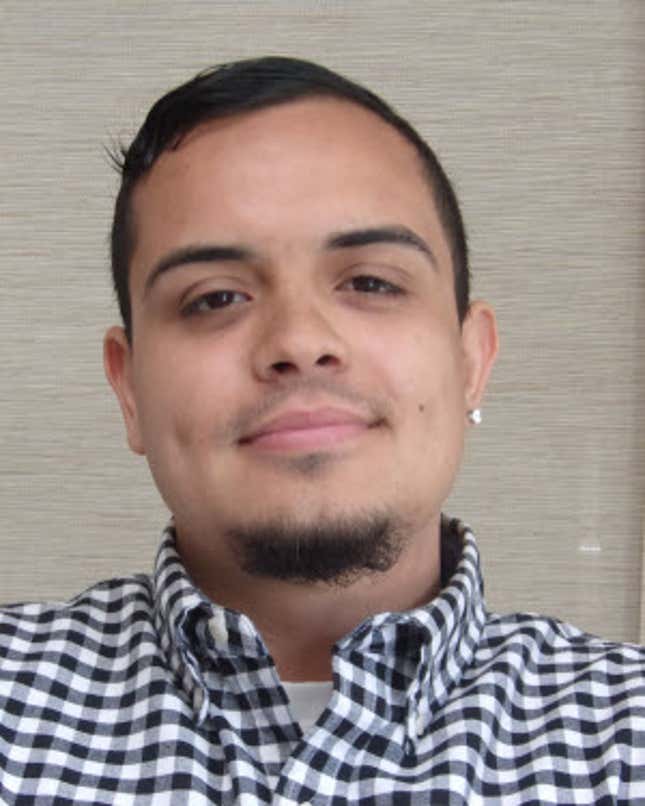
Antonio Torres was 19 when he became a caregiver at a Sunrise assisted living property in California at the recommendation of a friend. Five years later, he remains in the business, though he now works at Rowntree Gardens, a faith-based continuing care facility owned by Quaker Gardens, in Stanton, California. It’s practically around the corner from Disneyland, a more natural attraction for job hunters his age. But, says Torres, “I guess I’m an old soul.”
“What drew me to this job was seeing the community members,” he tells Quartz. “I noticed that many of them didn’t have the family to go visit them. They didn’t really have that love. I felt like I could give them that.”
“When I know they’re in that position, I just felt I should be there,” he says.
Randy Brown, the CEO of Rowntree Gardens, has had a streak of good luck finding young people like Torres lately. Or maybe it’s more strategy than fortune: He recently hired a millennial recruiter who knew how to talk about the work with twentysomethings. “It took me a few days to get used to the man-bun,” says Brown, half-jokingly, but when he heard that recruiter on the phone, he could hear the difference it was making. “He just intuitively, early on, knew the right questions,” Brown continues, “and it really does come back to purpose, young people wanting purpose. They also want flexible hours, different things. We started recognizing, ‘Wow, he speaks their language really well.’” When that recruiter left to do missionary work, Brown replaced him with someone on staff who was in the same age group and equally plugged in.
The day-to-day of the job involves assisting people with grooming and dressing, escorting people to and from activities or meals, and ensuring everyone feels safe, connected, and cared for. Arguably, it also requires extra emotional intelligence and maturity to truly see and respect elders in a society so committed to an anti-aging agenda. For Torres, however, it seems to come naturally. “We just talk,” he says of the work. “I help them with what they need and then we can just have a conversation, just about life and how things are going, and how they grew up,” he tells me. He loves those conversations, he says.
Male caregivers are less common at retirement homes, and sometimes residents can be vocal about preferring a woman, Torres says. When he first started at the assisted living residence at Rowntree, “a few people weren’t fond of me,” he recalls. Within a week, things changed. “I ended up getting through to them. Soon, they were asking for me specifically.”
His friends don’t always get it. Torres reports that he fields questions like “How can you do it?” Seniors residences still have a reputation of being sad and lonely places where people are warehoused, and a few places live up to that dismal vision, but many don’t. Still, his peers tell Torres that “it must take a strong person to see somebody in that position and be gentle to care for them,” he continues. “I say, ‘You just have the compassion. You have the heart, and if you can help them in their time of need, that’s all it is.”
Torres has weighed pursuing nursing school or a degree in social work to become a therapist, but has put his education on hold because of the pandemic. He wants to see people his age show more empathy for, and understanding of, people who are older, or who have dementia, and happen to need care. “I would hope that this pandemic can change the minds of the younger kids coming up,” he says. “Not only do we need to protect ourselves, but the senior citizens—they really need our help.”
